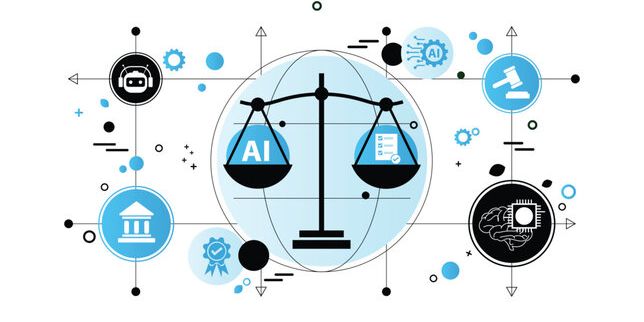Ethical Considerations When Using AI in Homeopathy

As the medical field evolves with technology, Artificial Intelligence (AI) has begun to play a transformative role in healthcare practices. Homeopathy, a system of alternative medicine that has been practiced for centuries, is no exception to this technological revolution. With tools like HomeoAI and online consultations with top homeopathic doctors, AI promises to enhance the precision, personalization, and accessibility of homeopathic treatments. However, integrating AI into homeopathy brings up several ethical considerations that need careful thought and management.
In this blog, we will explore the key ethical issues surrounding the use of AI in homeopathy, addressing concerns that homeopathic practitioners must consider when incorporating these technologies into their practices.
Maintaining Patient Autonomy and Informed Consent
Patient autonomy is one of the foundational ethical principles in healthcare. With the integration of AI tools like HomeoAI in homeopathic practice, it's crucial that patients are fully aware of how their data will be used, analyzed, and stored. This ensures that patients make informed decisions about participating in AI-assisted treatments.
Key Points:
- Transparency in data usage: Homeopathic doctors must explain to patients how their personal and health data will be used by AI tools.
- Informed consent: Patients should have the option to accept or refuse AI-driven recommendations, ensuring they are in control of their healthcare decisions.
- Privacy agreements: Make sure to provide patients with clear agreements on data protection and their rights.
Ensuring Data Privacy and Security
With AI tools processing sensitive medical data, protecting patient privacy is paramount. AI in homeopathy requires large amounts of data for training algorithms and providing accurate recommendations. As a result, practitioners must ensure that patient data is secure, encrypted, and only accessible to authorized personnel.
Key Points:
- Data encryption and storage: It’s critical to use top-tier encryption methods to secure patient data.
- Adherence to regulations: Complying with data protection laws like GDPR or HIPAA is essential to avoid legal issues and maintain patient trust.
- Minimizing data exposure: Implement safeguards to ensure patient information is only used for its intended purpose.
Professional Accountability
AI has the potential to assist homeopathic doctors in diagnosing and suggesting remedies, but the final decision should always rest with the qualified practitioner. AI tools, while advanced, should not replace human expertise. Homeopathic AI solutions should serve as an aid rather than a substitute for professional judgment.
Key Points:
- Responsibility of practitioners: Homeopathic doctors remain accountable for treatment outcomes, even if AI-assisted recommendations are used.
- Collaboration between AI and homeopathy: AI should complement the expertise of a doctor, not undermine the trust between patient and practitioner.
- Avoiding over-reliance on AI: Homeopaths must strike a balance between using AI tools and their own clinical experience.
Mitigating Bias in AI Models
AI algorithms are trained using data, and like all systems, they are susceptible to biases. In AI-assisted homeopathy, if the data used for training the system is biased, the AI could make recommendations that favor certain demographic groups over others, potentially leading to inequitable care.
Key Points:
- Data diversity: Ensure that AI tools are trained on diverse datasets to reduce biases in diagnosis and treatment suggestions.
- Ongoing auditing: Regularly audit AI models to identify and correct any potential biases in the system.
- Promoting fairness: Aim to create AI solutions that provide fair and equitable care to all patients, regardless of background or demographics.
Preserving the Doctor-Patient Relationship
One of the hallmarks of homeopathic treatment is the strong relationship between doctor and patient. AI in homeopathy should not replace this vital aspect of care. Homeopathic consultations often involve understanding the emotional and psychological state of patients, which AI cannot fully replicate.
Key Points:
- Human touch in AI-enhanced care: Use AI tools to augment, not replace, personal interactions between doctors and patients.
- Maintaining trust: Patients should feel confident that their relationship with their doctor is not diminished by AI tools.
- Using AI as a supplementary tool: Tools like HomeoAI should be viewed as a supplement to human expertise rather than a replacement.
Explainability and Transparency in AI Decisions
AI systems can sometimes operate as “black boxes,” where the rationale behind a decision is unclear. For homeopathic practitioners, understanding the reasoning behind AI-driven suggestions is crucial to ensuring that these recommendations align with the holistic approach of homeopathy.
Key Points:
- Transparency in AI models: The AI system should offer explanations for why certain remedies or treatments are suggested based on the data.
- Educating practitioners: Homeopaths must be trained to interpret AI results and integrate them into their clinical practice.
- Patient understanding: Patients should be informed about how the AI works and how its suggestions are developed.
Aligning AI Solutions with Homeopathic Principles
The foundation of homeopathy lies in treating the individual as a whole, with remedies tailored to the specific constitution of the patient. AI tools must be developed with these principles in mind to ensure they don’t oversimplify or misinterpret the holistic nature of homeopathy.
Key Points:
- Customization and individuality: AI should be used to support personalized treatment, respecting the individuality of each patient.
- Avoiding reductionism: Homeopaths must ensure that AI-driven treatments maintain the complex and individualized approach that defines homeopathy.
- Collaboration with experts: AI development should involve homeopathic experts to ensure the technology complements traditional practices.
Regulatory Compliance and Ethical Standards
As the use of AI in homeopathy grows, it’s essential for both the developers of AI tools and homeopathic practitioners to adhere to ethical standards and medical regulations. These guidelines ensure that the AI system is safe, effective, and aligned with medical ethics.
Key Points:
- Regulatory adherence: Ensure that AI technologies comply with national and international healthcare regulations.
- Ethical use of AI: Establish clear guidelines for the ethical use of AI tools in homeopathy.
- Continuous monitoring: AI systems must be regularly monitored and updated to meet evolving ethical and regulatory standards.
Conclusion
The integration of AI into homeopathic practices presents significant opportunities for enhanced patient care, improved diagnostic accuracy, and more personalized treatment plans. However, it also raises important ethical considerations. By addressing concerns like patient autonomy, data security, professional accountability, and ensuring AI tools align with homeopathic principles, homeopathic practitioners can harness the power of HomeoAI and other technologies while maintaining the integrity of their practice.
At HomeoAI, we believe in combining the best of technology and homeopathy for personalized and effective patient care. Explore AI-powered homeopathy solutions today to enhance your practice.
Contact us for a demo, subscribe for the latest updates, or book an online consultation with our top homeopathic doctors to experience how AI can optimize your treatments.
FAQs
What ethical issues arise when using AI in homeopathy?
The key ethical concerns include patient autonomy, data privacy, bias in AI algorithms, maintaining professional accountability, and ensuring the AI aligns with the holistic principles of homeopathy.
How can AI enhance homeopathy?
AI can assist in analyzing vast amounts of patient data to suggest personalized treatments, enhancing the accuracy and efficiency of diagnosis and remedy selection while supporting homeopaths in their decision-making process.
Is patient privacy protected when using AI in homeopathy?
Yes, with robust encryption and compliance with data protection laws like GDPR or HIPAA, AI tools can safeguard patient data, ensuring it is only used for its intended purpose and protected from unauthorized access.
Can AI replace homeopathic doctors?
No, AI is designed to support and enhance the decision-making process, not replace the expertise and empathetic care of homeopathic practitioners. The final decision should always rest with the doctor.
Sources
https://pmc.ncbi.nlm.nih.gov/articles/PMC8826344/
https://www.frontiersin.org/journals/surgery/articles/10.3389/fsurg.2022.862322/full

